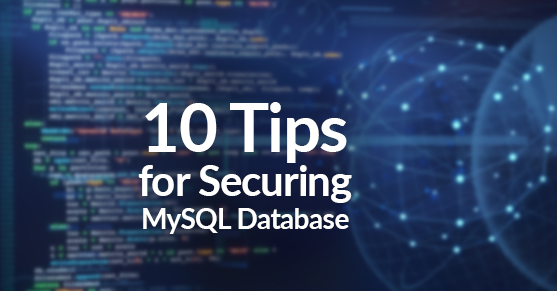MySQL is one of the most widely used relational database management systems in the world. With its popularity comes the need to ensure the security of the data it manages. Below are some tips for securing a MySQL database.
1. Use Strong Passwords
Passwords are the first line of defense against unauthorized access to your database. Use strong passwords that are at least eight characters long and contain a combination of letters, numbers, and symbols. It is also recommended to change the password periodically.
2. Limit Access to the Database
Only allow access to the database for users who need it. Restrict access to the database server by allowing only specific IP addresses or networks to connect. Use the principle of least privilege, which means that users should only have access to the minimum amount of data they need to do their jobs.
3. Encrypt Data
Encrypting data is essential to protect sensitive information in case it falls into the wrong hands. MySQL offers various encryption options, like data-at-rest encryption using file-level or block-level encryption. For more information, follow this link: https://dev.mysql.com/doc/refman/8.0/en/innodb-data-encryption.html
4. Enable SSL Connections
SSL/TLS encryption for secure connections. It is easy to enable SSL connections from MySQL 5.7 and after. The certificates are already created in the datadir, and openssl software is included in most Linux platforms.
5. Critical Patch Updates
Keeping MySQL and any related software up-to-date with the latest security patches and bug fixes is vital. This helps prevent known vulnerabilities from being exploited by attackers. Critical Patch Updates are released each quarter and can be found here: https://www.oracle.com/security-alerts/?source=:em:gbc:ie:cpo:::RC_WWMK210714P00017:SEV400285523
6. Backup and Recovery
Regularly back up your MySQL data and test your recovery process to ensure you can recover in case of a disaster. Backups can also be helpful in case of a security breach or accidental deletion of data.
7. Use a Firewall
Use a firewall to restrict access to the MySQL server from unauthorized sources. MySQL can be configured to only listen on specific ports or IP addresses.
8. Audit Logs
If you are running your database on MySQL Enterprise, you can enable logging to keep track of all activities on your MySQL server. This can help you identify any suspicious activity and provide an audit trail in case of a security incident. Instruction on installing this plugin can be found here: https://dev.mysql.com/doc/refman/8.0/en/audit-log-installation.html
9. Disable Unnecessary Features
Disable any unnecessary MySQL features and plugins to reduce the attack surface. For example, if you don’t need remote connections, disable them.
10. Upgrade to MySQL 8.0
MySQL 5.7 reaches its end of life in October 2023. Oracle will no longer support it, meaning no more critical patching to address software bugs and vulnerabilities.
Conclusion
Following these tips can help secure your MySQL database and protect your data from unauthorized access or loss. Securing your database is an ongoing process, and you should regularly review and update your security measures to stay protected.
For more information, please reach out!

